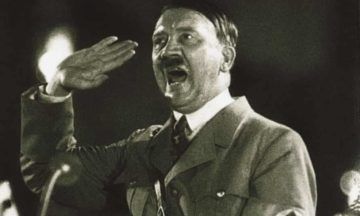Andrew Anthony in The Guardian:
 The Australian historian and Regius professor of history at Cambridge, Christopher Clark, is best known for his commanding study of the origins of the first world war, Sleepwalkers. The historian Thomas Laqueur admiringly observed that it was not only the best book on the subject, “but a brilliant and intellectually bracing model for the writing of history”.
The Australian historian and Regius professor of history at Cambridge, Christopher Clark, is best known for his commanding study of the origins of the first world war, Sleepwalkers. The historian Thomas Laqueur admiringly observed that it was not only the best book on the subject, “but a brilliant and intellectually bracing model for the writing of history”.
In this new collection of essays, Prisoners of Time, Clark displays that brilliance and bracing intellect to exhilarating effect. He is not only a learned historian but an engaging historiographer, able to combine a far-reaching grasp of research with a critical understanding of how history is created. The long opening essay, entitled The Dream of Nebuchadnezzar, is a bravura exploration of the role of political power in history. It begins with the Book of Daniel and the king of the neo-Babylonian empire’s disturbing dream, which the imprisoned Daniel interprets as a prophecy, thus rendering the grateful king his worshipful servant.
The story is both a fable of power and, as Clark explains, the beginning of the understanding of history as a foreordained “sequence of hegemonies”. Until the modern era, that was the conventional means of delineating the march of time, a tendency that was only slightly amended by Hegel’s notion of historical progress. Even today, having emerged from what Henry Luce called the “American century”, there is much talk of China’s assumption of the mantle of world power. “The habit of imagining history as a succession of empires has been hard to shake.” And it’s a habit that in its era-defining clarity promotes a picture of the struggle for power that obscures its complex nature. As Clark notes: “Power is at once the most ubiquitous and most elusive theme of historical writing.”
More here.
